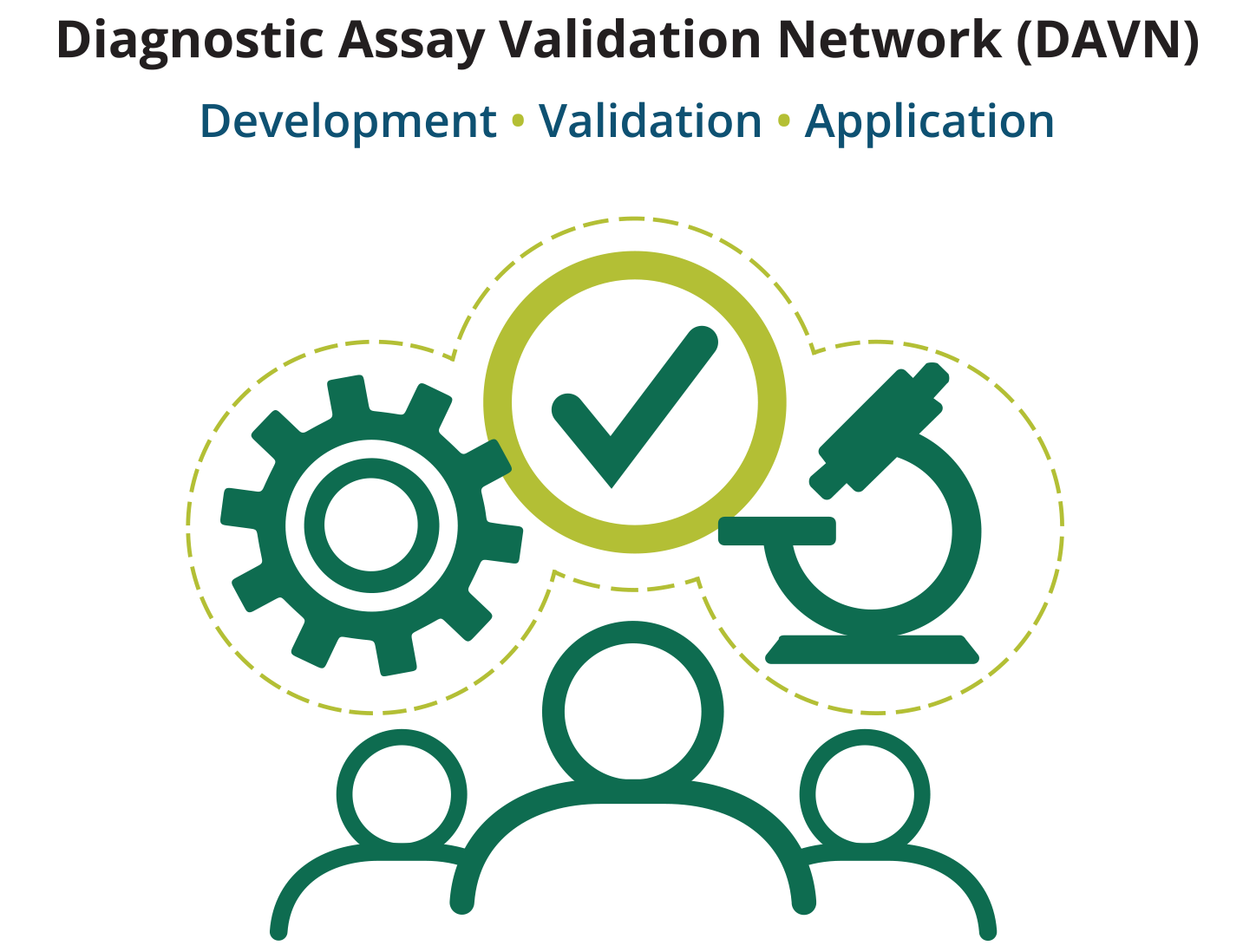
This webinar is organized by the Diagnostic Assay Validation Network (DAVN)
Broadcast Date: April 29, 2024 | 12:00 – 1:30 PM Central
Register Now!
Webinar Summary
Clustered regularly interspaced short palindromic repeats (CRISPR, pronounced “crisper”) were first detected in 1987 by Yoshizumi Ishino in Escherichia coli. While at the time, the lack of sufficient DNA sequence data made it impossible to predict their function, advances on sequencing technologies and further studies on sequence similarities allowed scientists to understand how CRISPRs work alongside CRISPR-associated enzymes (Cas) as a system (CRISPR-Cas) to protect prokaryotic cells against invading viruses and plasmids. Further studies on CRISPR-Cas systems led to the invention of CRISPR-Cas9 genome editing technology and the 2020 Nobel Prize in Chemistry awarded to Jennifer Doudna and Emanuelle Charpentier.
In the last few years, scientists have harnessed the power of the CRISPR-Cas system as a tool for the specific detection of pathogens with increased sensitivity and portability. In this webinar we will introduce the process for the design, development, and optimization of different CRISPR-Cas methods for the detection of plant pathogens. Speakers will reflect on best practices, lessons learned and future promise for this technology.
Learning Objectives
The audience will:
- Learn the basics behind CRISPR-Cas detection systems
- Gain a broad understanding of the various CRISPR-Cas detection methods
- Explore how to develop and optimize these methods for sensitive plant pathogen detection.
Presenters

Nik Grunwald
USDA ARS
| Niklaus J. Grünwald is a Research Plant Pathologist with the Horticultural Crops Disease and Pest Management Research Laboratory, USDA Agricultural Research Service, in Corvallis, Oregon and Professor in the Department of Botany and Plant Pathology and the Center for Quantitative Life Sciences at Oregon State University. He received his Ph.D. in plant pathology from the University of California at Davis and conducted postdoctoral research at Cornell University. His principal research interests include the ecology, genetics, evolution, and management of emerging Phytophthora diseases with a special emphasis on the Sudden Oak Death pathogen Phytophthora ramorum and the Irish famine pathogen P. infestans. More recently, he has started working on development of computational and bioinformatics tools for comparative genomics, genotyping-by-sequencing, population genomics, metabarcoding, metagenomics and diagnostics based on CRISPR-Cas. Grünwald has served as associate editor, senior editor and editor-in-chief for Phytopathology and PhytoFrontiers, editor for Plant Pathology, and currently serves as founding editor-in chief for CABI Agriculture and Bioscience. He currently is the president of the American Phytopathological Society (APS). He is a recipient of the 2006 USDA ARS Early Career Scientist of the Year award, the 2007 APS Syngenta award, the 2015 APS Ruth Allen Award recognizing outstanding, innovative research contribution that have changed the direction of research in any field of plant pathology and became APS fellow in 2016 and American Association for the Advancement of Science (AAAS) fellow in 2019. |
.jpg)
University of Maryland-College Park
| Joseph Lagner is a current PhD student in the Yiping Qi Lab at University of Maryland-College Park. Before UMD, Joseph worked in the tree health care industry performing on-site diagnostics and treatment of numerous tree species and diseases for clients' properties. The Qi Lab focuses on innovative discoveries of novel CRISPR/Cas systems for gene editing in plants. Joseph’s PhD career so far has been utilizing a different application of CRISPR/Cas proteins outside of gene editing to create disease detection assays for agriculturally-relevant plant pathogens, such as phytoplasma and sugarcane viruses. Cas proteins from the type V family have a unique behavior after finding their target site. The activity of the proteins change from very specific cis-cleavage, to non-discriminate trans-cleavage. Joseph has been working closely with USDA-APHIS diagnosticians throughout his PhD to establish specific, sensitive assays to one day be used by diagnosticians in the lab or in-field. In this lecture series, he hopes to teach others how to establish their own CRISPR-based detection assay, pulling from his experiences and challenges developing his own detection assays from scratch. |

Yinong Yang
Pennsylvania State University
| Yinong Yang is a Professor in the Department of Plant Pathology and Environmental Microbiology and the Huck Institutes of the Life Sciences at the Pennsylvania State University. He received a PhD in Plant Molecular and Cellular Biology from University of Florida and conducted postdoctoral research in the Waksman Institute of Microbiology at Rutgers University. Over the past thirty years, he has been primarily worked in the areas of molecular plant-microbe interactions and genome editing. His recent studies focus on the improvement and application of CRISPR/Cas technologies in plant and microbial genome engineering, crop breeding and disease diagnostics. He is a recipient of the Research Innovator Award from Penn State College of Agricultural Sciences and a Fellow of the American Association for the Advancement of Science and American Phytopathological Society. |
